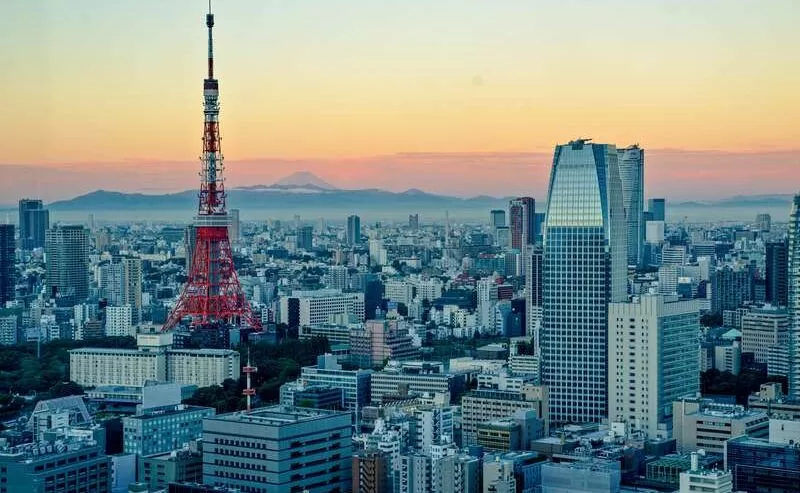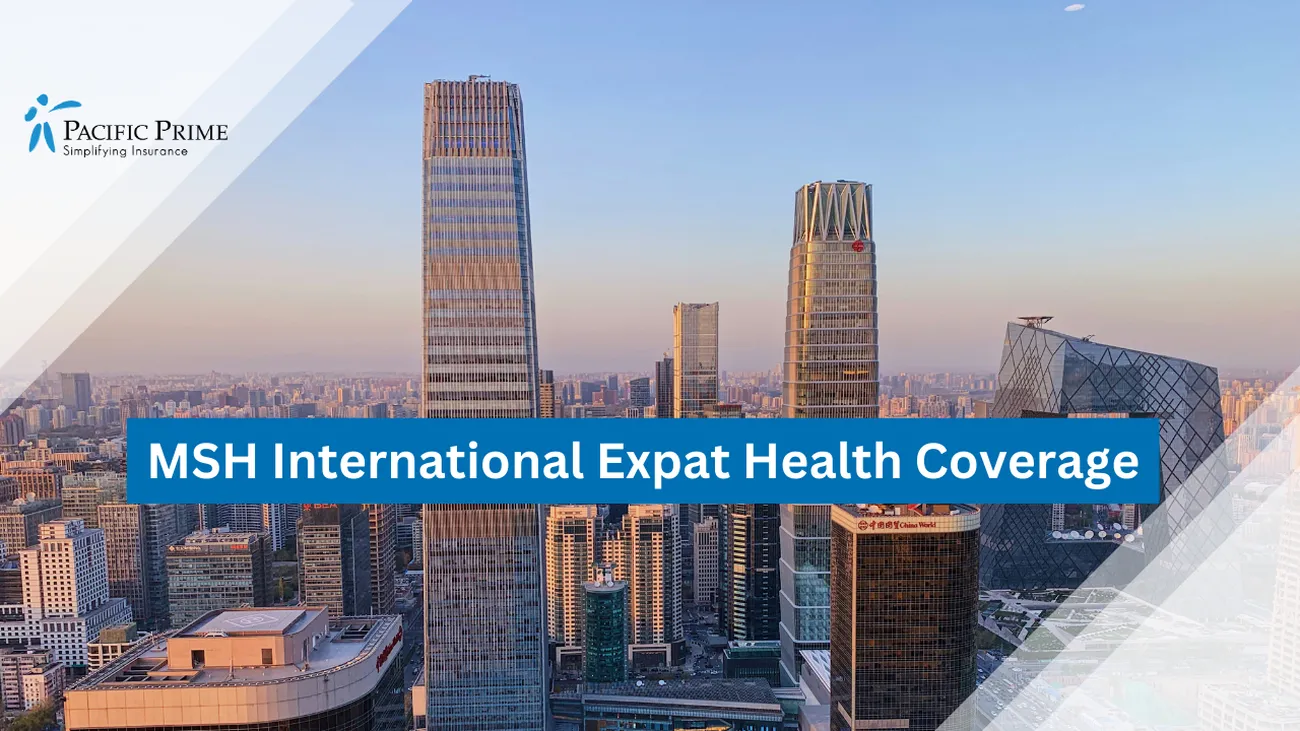Living Abroad In Japan: Cost Of Living And Visas
If you’re an expat interested in living abroad in Japan, you’ll want to learn about the cost of living, cultural differences, and visa requirements to move there. The culture shock may be daunting, but don’t let the financial expectations take you by surprise. Pacific Prime has got you covered!
Discover the world's top
health insurers.
Compare quotes with
a click of the button.
Japan is famous for its kabuki baths, sushi-boat restaurants, technological advancements, and its Buddhist Temples. No wonder you may be considering moving there as a foreigner! There is so much to explore and fall in love with.
Our job is to make your transition smooth and painless. By the time you’re done reading this, you’ll want to check out our general guide to living abroad in Asia as well!
Guide To Living Abroad In Japan As An Expat
Living abroad as an expat or digital nomad in Japan is a change. You need to consider all aspects of the cost of living, such as rent, groceries, travel expenses, salary, educational fees, and health insurance. Japan is more affordable than the United States, and we’re here to tell you why!
![]()
By breaking down each of these categories for you, we’ve laid out an easy-to-follow guide that is your go-to resource when determining if Japan is the right country for you.
If you get to the end of this article and are confident in choosing Japan, you’ll be ready to explore the best places to live in Japan!
Cost Of Living In Japan Vs. USA
The average cost of living in Japan for one person is $1,200 a month, while in the USA it’s $2,213 a month. For a family to live in Japan, it costs $3,051 a month on average, compared to $5,003 in the United States.
These values come from crowd-sourced data and are intended to give you an idea of what you may spend when living in Japan, but they are not exact prices.
To help you understand what you might pay as an expat in Japan for living expenses, we’ll compare housing, food, and transportation, as well as average salaries, between Japan and the USA.
Housing Expenses In Japan Vs. USA
Rent for one person living in Japan costs $546 a month on average vs. $1,399 a month in the USA. Rent for a family living in Japan costs $1,049 a month on average vs. $2,331 a month in the USA. These vary depending on how close you are to the city center and which city.
Here are some average monthly housing costs:
- 1-bedroom apartment downtown: $532 in Japan vs. $1,483 in the USA
- Cheap 1-bedroom apartment: $376 in Japan vs. $1,154 in the USA
- 3-bedroom apartment downtown: $1,146 in Japan vs. $2,565 in the USA
- Cheap 3-bedroom apartment downtown: $782 in Japan vs. $1,971 in the USA
Food Expenses In Japan Vs. USA
On average, food expenses cost $407 a month in Japan vs. $568 a month in the USA. Eating out in a restaurant is about half as expensive in Japan as it is in the United States, although buying groceries seems to be relatively comparable with only select items being cheaper in Japan.
Eating out averages:
- Lunch: $6.71 in Japan vs. $16.60 in the USA
- Dinner: $34.80 in Japan vs. $63.30 in the USA
- Fast food meal: $5.40 in Japan vs. $9.07 in the USA
Grocery averages:
- 1 qt of milk: $1.43 in Japan vs. $1.05 in the USA
- 1.1 lb of bread: $1.54 in Japan vs. $3.04 in the USA
- 2.2 lb of rice: $3.36 in Japan vs. $3.99 in the USA
- 12 eggs: $1.89 in Japan vs. $3.91 in the USA
- 2.2 lb of chicken: $7.01 in Japan vs. $11.70 in the USA
- 2.2 lb of apples: $4.94 in Japan vs. $4.66 in the USA
Transportation Expenses In Japan Vs. USA
Transportation expenses in Japan cost $144 a month on average vs. $98 a month in the USA. Monthly tickets for public transportation are almost equal between the two countries, but a single taxi ride is about one and a half times the cost of a ride in the USA in Japan.
Transportation average costs:
- Local transport ticket: $1.90 in Japan vs. $2.23 in the USA
- Monthly local transport ticket: $65.90 in Japan vs. $65.50 in the USA
- Taxi Ride for 5 miles: $26.40 in Japan vs. $17.40 in the USA
- ¼ gallon of gas: $1.21 in Japan vs. $1.01 in the USA
Salaries In Japan Vs. USA
The average monthly salary after tax in Japan is $2,447 vs. $4,223 in the USA. The average annual salary in Japan after tax is $29,364 compared to $50,676 in the United States. These vary greatly based on your occupation and where you live.
Is Japan Expensive To Live In?
Contrary to popular belief, Japan is not too expensive to live in assuming you are used to a Western lifestyle and living standards. The average cost of living in Japan is 46% less expensive than the average cost of living in the United States.

Japan ranks as the 44th most expensive country in the world while the USA is the 5th. There are definitely places near city centers and the countryside that are both very affordable.
When determining if you can afford Japan, you may want to consider your educational and healthcare expenses as well.
Education In Japan For Expats
The public education systems in Japan consistently rank in the top 5 around the globe. They emphasize teaching morals and ethics and developing students into strong, resilient adults instead of solely focusing on learning facts. However, there is strong academic pressure to succeed.
Children are compelled to attend school from ages 6 – 15 (grades 1-9), and grades 10-12 are not required, though most students still attend. The school year lasts the entire calendar year from April – March and many students even attend an additional Saturday school.
It is free for foreign students to attend public schools, though there are customary fees for lunches, materials, uniforms, and PTA contributions.
There are also international schools available that expats may prefer to send their children to. One of the biggest benefits of this is that these schools can teach in English. Another is that the classes are smaller which means more adaptation to each student’s needs, especially to students with special needs.
International schools are expensive and can cost $13,700 – $21,000 annually, plus the fees for uniforms, materials, and registration.
Healthcare In Japan For Expats
The healthcare system in Japan is ranked as the fourth-best in the world, and it is one of the most cost-efficient systems. 70% of all fees are paid for by two health insurance schemes set up by the government. The remaining 30% of fees are paid for by the patient.
These are the two government schemes that foreigners and expats can participate in:
- Social Health Insurance (SHI): This is a program that all full-time employees of medium to large companies participate in. It automatically takes about 5% of your salary and contributes it to the SHI funds.
- National Health Insurance (NHI): This is a program for employees of small companies and self-employed individuals. The amount they contribute to the NHI funds are determined based on individual income.
It’s important you know that the SHI program doesn’t take effect for expats until a year after you’ve moved and begun working in Japan. That means you’ll need to get a private healthcare plan in Japan to fill that gap.
You may also want a private plan to have access to English-speaking medical personnel and world-class services.
If you have further questions, learn more about Japan’s public and private healthcare options.
Living In Japan As An American
Living in Japan as an American may mean you will be unfamiliar with many of the cultural traditions that make the Japanese who they are. These may include the Shinto and Buddhist religions, geisha and maiko entertainers, Japanese theater, and the Samurai warrior class.
To ease your transition, here are a few social convention tips to help you respect the locals and learn to embrace their ways:
- Bowing: There are several forms of bows, though you are not always expected to bow. The eshaku 15-degree bow is semi-formal and will likely be the one you use the most when a simple head nod is not adequate.
- Removing your shoes: To show respect and preserve cleanliness, take off your shoes when entering a ryokan (traditional guesthouse), a home, a temple, or some restaurants.
- Calling others “san”: Similar to saying Mr. or Mrs., add “san” to the last name of someone you greet. Fr example, you’d call Mrs. Suzuki “Suzuki-san.”
Moving To Japan From The USA
When moving to Japan from the USA, you will need to apply for the correct visa that allows you to reside in the country for longer than 90 days. There are highly skilled professional visas, working visas, general visas, specified visas, start-up visas, diplomatic visas, and official visas.

This is a list of some of the types of Japanese work and long-term stay visas:
- Highly skilled professional visas
- Highly skilled professional
- Special highly skilled professional
- Highly skilled foreign professional
- Working visas
- Professor
- Artist
- Religious activities
- Journalist
- Business manager
- Legal/accounting services
- Medical services
- Researcher
- Instructor
- Engineer/specialist in humanities
- Intra-company transferee
- Nursing care
- General visas
- Cultural activities
- Student
- Training
- Dependent (Family stays)
To apply for your visa, you’ll need to personally go to your nearest Japanese Embassy and present all necessary documents before you move overseas.
Conclusion
You now have a better understanding of how much it might cost you to live in Japan as an expat or digital nomad. We hope this information has been helpful! If you’re not committed to Japan just yet, consider living abroad in Taiwan or Malaysia.
As you prepare to jump on a plane, talk to an insurance expert at Pacific Prime to square away the right international health insurance plan so you’re covered not only in Japan but in any country you may visit.
- Diversity, Equity, and Inclusion in the Workplace - February 29, 2024
- Is It Cheaper To Live In Dubai Or The United States? - September 28, 2023
- The Best Thailand Holiday Insurance - September 27, 2023








Comments
1 Comment
How do expats in Japan typically supplement their government health insurance with private coverage, and what are the most sought-after benefits in these private plans?
Leave a Comment